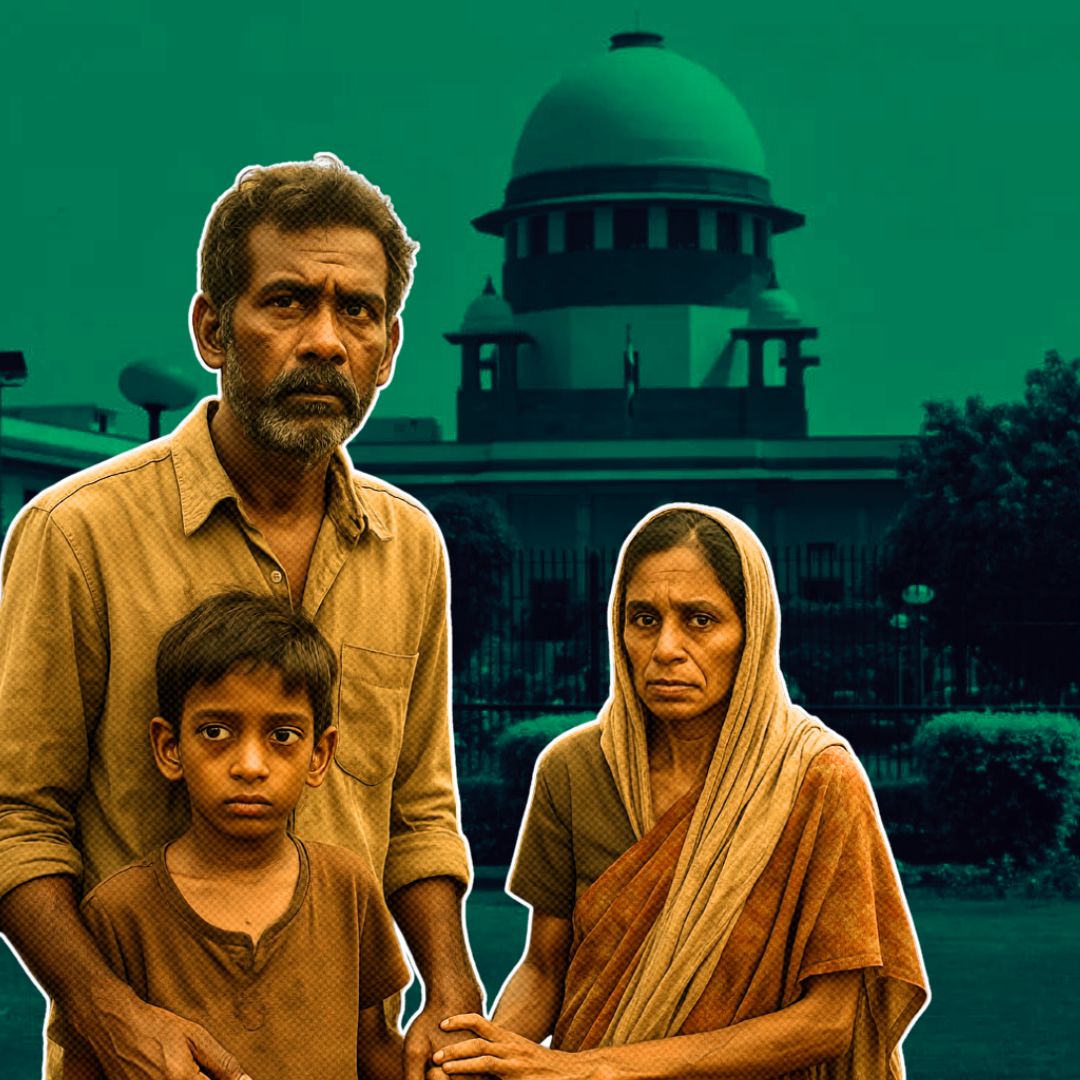On May 19, 2025, the Supreme Court of India dismissed a plea by a Sri Lankan Tamil national seeking protection from deportation after completing a seven-year sentence under the Unlawful Activities (Prevention) Act (UAPA). The petitioner, who entered India legally on a visa, claimed that returning to Sri Lanka would endanger his life due to alleged persecution.
He also cited the presence of his wife and children in India, who face health challenges. However, the Supreme Court upheld the Madras High Court’s directive for immediate deportation, emphasising that India is not a “dharamshala” (sanctuary) for refugees worldwide and that the right to settle in India is constitutionally reserved for its citizens. The court’s decision reflects a firm stance on immigration and national security concerns.
Supreme Court’s Firm Stance: “India Not a Dharamshala”
The Supreme Court bench, comprising Justices Dipankar Datta and K Vinod Chandran, made it clear during the hearing that India cannot indefinitely harbour foreign nationals, especially when it is already home to a vast population of 140 crore people.
Justice Datta remarked, “Is India to host refugees from all over the world? We are already struggling with a population of 140 crore. This is not a dharamshala where we can entertain foreign nationals from everywhere.” The petitioner’s counsel argued that the individual had legally entered India and had been detained for nearly three years after serving his sentence without deportation proceedings being initiated promptly.
The petitioner’s family, including his wife and children, reportedly face significant health issues, which the counsel urged the court to consider. Despite these humanitarian appeals, the court remained firm, questioning the petitioner’s legal entitlement to settle in India and suggesting that he seek refuge elsewhere.
The court’s decision underscores India’s prioritisation of national sovereignty and legal boundaries over indefinite asylum.
Background: Legal Proceedings and Humanitarian Concerns
The petitioner was arrested in 2015 on charges related to alleged links with the Liberation Tigers of Tamil Eelam (LTTE), a banned organisation in India and Sri Lanka. Convicted in 2018 under the UAPA, his sentence was later reduced to seven years by the Madras High Court in 2022.
Alongside the sentence reduction, the High Court ordered his immediate deportation to Sri Lanka upon release. The petitioner’s legal team contended that repatriation would put his life at risk due to political persecution and violence in Sri Lanka, invoking Article 21 (right to life and liberty) of the Indian Constitution.
They also highlighted that his wife and children, who reside in India, are medically vulnerable. However, the Supreme Court clarified that Article 21 protections were not breached since due process was followed and that Article 19 rights, including the right to settle, apply only to Indian citizens.
This ruling aligns with the court’s recent decisions refusing to halt deportations of other foreign nationals, such as Rohingya refugees, reflecting a consistent judicial approach balancing humanitarian concerns with national security and immigration law.
The Logical Indian’s Perspective
The Supreme Court’s decision brings to the fore the complex intersection of legal frameworks, national security, and humanitarian ethics. While it is undeniable that a sovereign nation must uphold its laws and protect its borders, it is equally important to remember the human stories behind such cases-stories of individuals and families seeking safety from persecution and hardship.
India, known for its rich tradition of hospitality and pluralism, faces the challenge of balancing its legal obligations with empathy and compassion. As global displacement grows, the question arises: how can India craft policies that uphold national security while honouring its commitment to kindness, coexistence, and human dignity?












